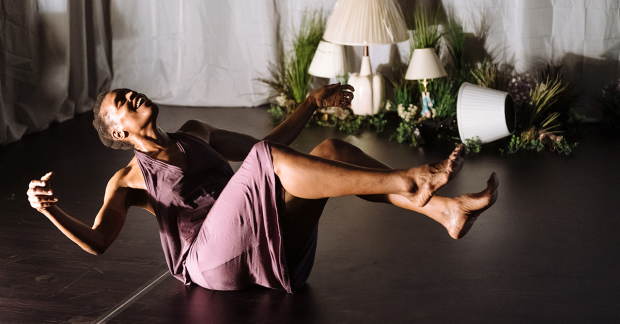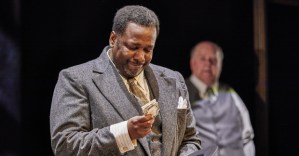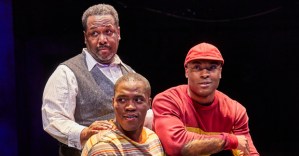Review: Bronx Gothic (Young Vic)
Okwui Okpokwasili’s dance-theatre art installation opens at the Young Vic

© Helen Murray 2019
In this extraordinary piece of dance-theatre, for the first 20 minutes that you see writer and performer Okwui Okpokwasili, she doesn't speak. Instead, she moves. Facing a corner of the stage, her back to the audience as they come into the space, she jerks and jiggles, vibrates and nods, all her muscles pulsing. As the lights go down, watching her sweating, writhing body makes you feel as if you are in a trance.
It sets the tone for Bronx Gothic, which presents a fragmented, dream-like narrative that draws on childhood memories, nightmares and written letters. The latter are between two 11 year-old girls; friends who fall out and make up again, one of whom is sexually active one of whom is not. Okpokwasili reads each letter, to and from, and there is a stark contrast between those spoken in a childlike voice and the others which are spoken in a more adult tone. One of the girls' tales of sexual experience are shocking.
In-between these moments, which are by turns funny, real and deeply unsettling, Okpokwasili speaks longer narratives about dreams and sex all of which are interrupted by moments of dance where her whole body, almost as if something is trying to escape from her, whacks and thwacks on the floor.
Bronx Gothic is likely to mean different things to different people. But at its heart it is a bitter tale of sexual awakening, identity and coming-of-age in a world that is chaotic, confusing and, ultimately, quite brutal.
Okpokwasili's performance is mesmeric throughout, commanding attention from the audience as she stares out at us, testing and challenging us with only her eyes and occasionally a sly smile. The piece embodies some of the confusion of that movement between childhood and adolescence, but also the objectification and sexualisation of women's bodies. Okpokwasili's movement translates as a kind of pent up rage and anger, perhaps at finding a place, or voice, or trying to be heard.
It is a haunting and penetrating performance, one driven by an arresting urgency and emotion from Okpokwasili. It speaks also to many, reflecting on the vulnerability and difficulty of finding a path in a world of hostility.



















